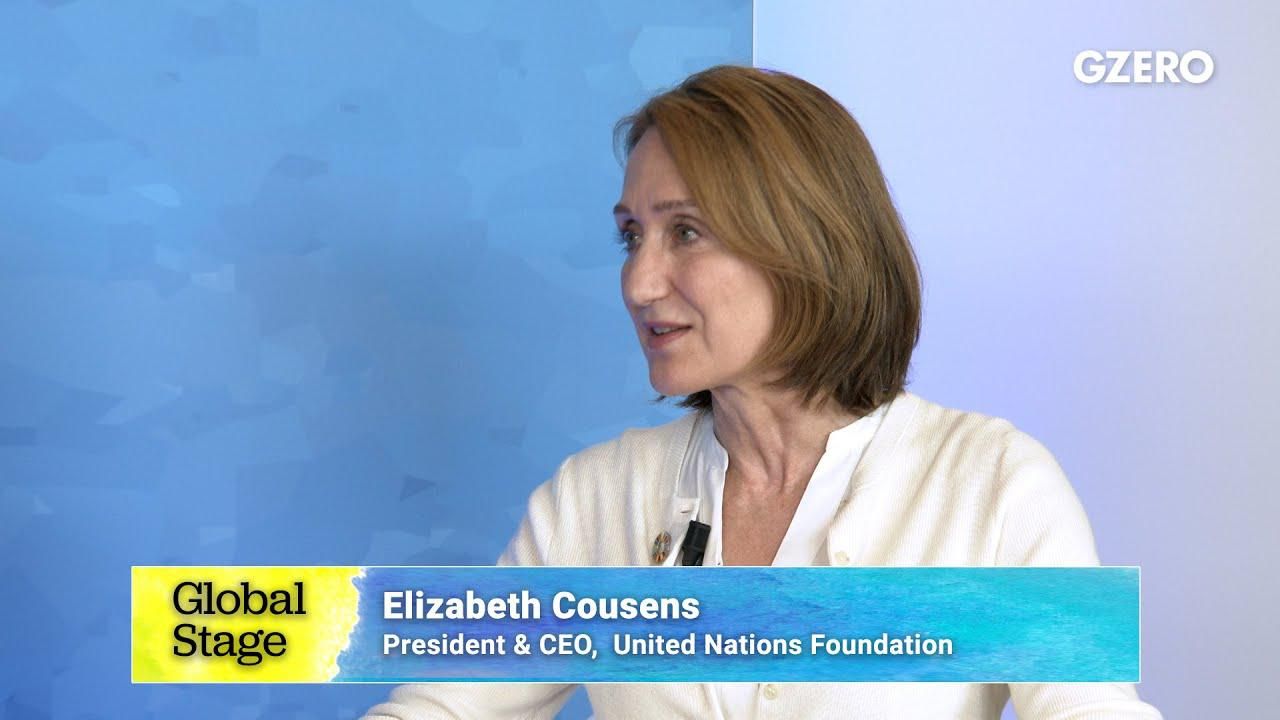In a food crisis, export controls are "worst possible" thing to do, says UN Foundation chief

The war in Ukraine has aggravated a global food crisis that started with the pandemic. Is there anything we can do about it?
The UN is trying, but there needs to be a much more ambitious response to what is already a catastrophic humanitarian crisis, UN Foundation President Elizabeth Cousens said during a Global Stage livestream discussion hosted by GZERO in partnership with Microsoft at the World Economic Forum in Davos, Switzerland. She was joined by Ian Bremmer, president of Eurasia Group and GZERO Media; Brad Smith, president and vice chair of Microsoft; and moderator Nicholas Thompson, CEO of The Atlantic.
That means looking "at the underlying fundamentals of this crisis as well beyond the most immediate and acute needs, how we address food security at large."
For instance, Cousens explains, export controls might be tempting when you want to "fall back within your own borders and preserve. But it's the worst possible thing you could do at a moment like this."
Still, many people will want a nationalist response if they can't afford basic food staples. And she gets it: "That's a fair frustration to understand, even if the solutions may not be the right remedy."
Watch more of this Global Stage discussion: "Crisis in a digital world"
- Why we're in the current food crisis — and who could fix it ›
- War in Ukraine: cascading impacts on global food supply - GZERO ... ›
- Hunger Pains: The Growing Global Food Crisis - GZERO Media ›
- Ukraine and the global food crisis: how bad will it get? - GZERO Media ›
- What's causing the growing global food crisis? Live townhall today at 2 pm ET - GZERO Media ›
- What's causing the global food crisis? Live townhall today at 2 pm ET - GZERO Media ›
- Inequality isn't inevitable - if global communities cooperate - GZERO Media ›
- Philanthropy's moment to act - GZERO Media ›
- Podcast: Salvaging the world we leave our kids with innovative philanthropy - GZERO Media ›